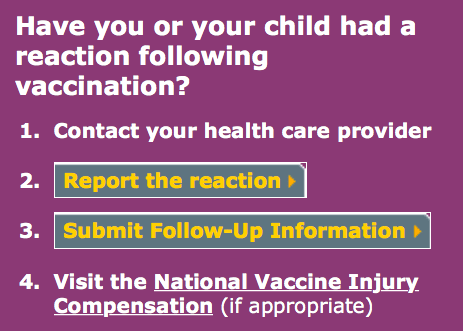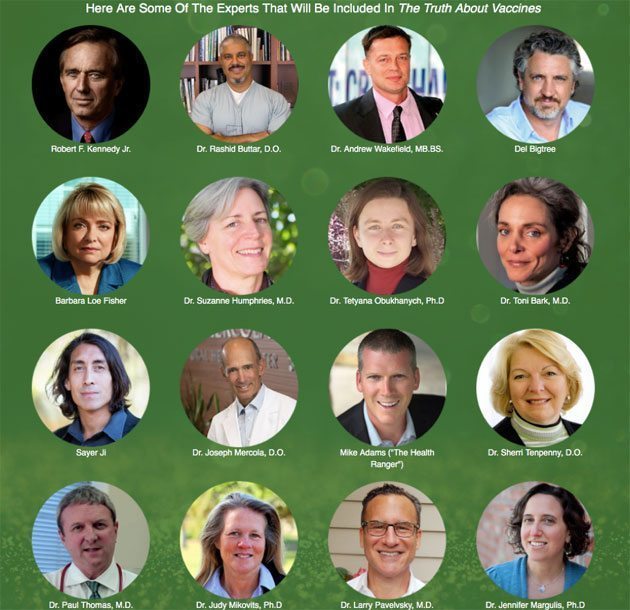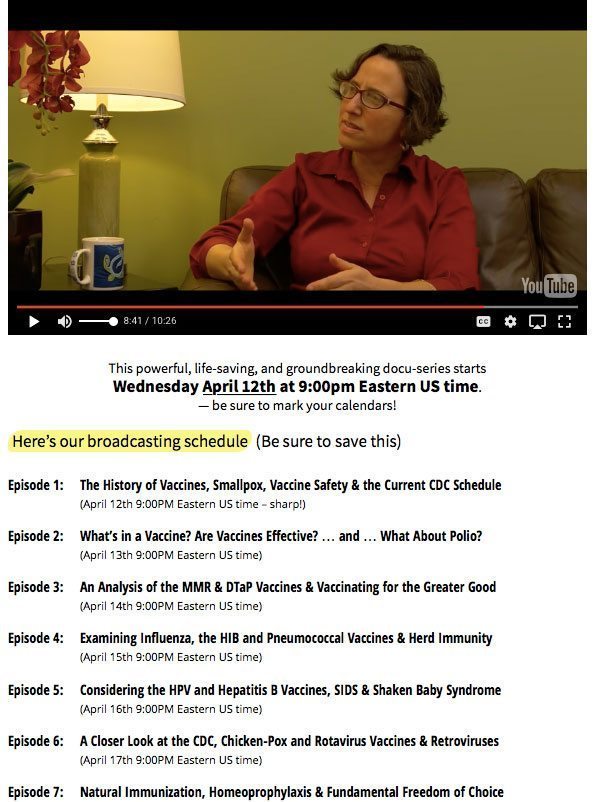
Photo via Pixabay
Over 60 Medical Doctors, Research Scientists, and Consumer Activists Explore Why Some Vaccinations Are Dangerous
If you know me or you’ve stopped by before, you probably already know that I recently wrote a book about vaccines, vaccine safety, and the immune system with a medical doctor named Paul Thomas, M.D. The book is called The Vaccine-Friendly Plan. But if you haven’t read the book (since I can’t even get my friends to LIKE my Facebook page, I suspect you haven’t) or if you’re here for the first time, you probably don’t know that my co-author, Paul Thomas, was born in the United States but grew up in Rhodesia. By the time he was in his early teens, Paul had seen more deaths in Africa than most Americans will see in their lifetimes. Newborns and infants succumbed to infectious diseases. Adults and children alike died of fulminating infections, dysentery, and malaria.
But no death was more devastating to him than the death of his playmate Taurai.
Taurai died of the measles, a vaccine-preventable disease.
So when the World Health Organization’s truck arrived at the village of Arnoldine, where Paul and his three younger siblings lived, the children happily lined up for their shots. In the heart of rural Africa, support was universal for this potentially life-saving technology.
Most medical doctors and health care providers agree that there is little question that vaccines have been one incredibly effective tool in modern medicine’s toolbox to help children around the world more successfully fight off infectious disease. It never would have occurred to Dr. Paul when he was first practicing medicine to ask the question, “Are vaccines harmful?”
Vaccines work like homeopathy. By exposing children to a weakened form of the disease agent, vaccines allow the body to build an immunological memory of the disease. If and when a child is exposed to that disease in the future, her immune system has already been primed to recognize and fight against it. So, when the vaccines work, children who have been vaccinated either do not get the infectious disease or get a much milder case.
According to a report published by the Centers for Disease Control and Prevention in 2014, in the past twenty years routine vaccination has prevented 322 million diseases, 21 million hospitalizations, and 732,000 deaths among children in America.
The same CDC report found that the positive financial benefit to society from routine vaccination in the past twenty years has been tremendous, saving us $295 billion in direct costs for medical expenses, and a total of more than $1.38 trillion in indirect costs to society.
Yet many American parents today are choosing to delay or forgo some, or even all, vaccines for their children.
Why is that?
These parents fear both the immediate and the long-term side effects from vaccines, they are concerned that vaccines may be one trigger for autism, they do not understand why we have so many more vaccines on the schedule than ever before (in the late 1950s American children were only vaccinated against five diseases; today’s children get more than three times as many vaccines), and they feel unsure about what to do.

The Vaccine Adverse Event Reporting System is the government’s passive vaccine injury tracking system. Screenshot via https://vaers.hhs.gov/index
The Supreme Court of the United States has found that vaccines are “unavoidably unsafe,” but also that they are products that are so valuable that the risks associated with their use is justified.
The fact that vaccines seem to be essential for public health and children’s well-being but that the current CDC childhood vaccine schedule seems to carry more risk and be resulting in more vaccine injury than ever before has created one of the most difficult parenting dilemmas of our time. Parents also wonder why there is legislation that protects vaccine manufacturers from liability and why there is a consumer tax on each vaccine used to fund pay-outs for vaccine injuries.
To vaccinate or not to vaccinate?
What do you do?
What vaccines to choose?
When is the best time to start?
What if the doctor gets angry at me if I don’t want to vaccinate?
What if I’m told my kid can’t go to school?
What in the heck is a thoughtful parent to do?
Enter Ty Bollinger’s new 7-part mini-series, The Truth About Vaccines. After his parents and five family members passed away from cancer, Ty Bollinger set out to investigate why. The result was a tremendously popular series that over three million people have watched called The Truth About Cancer. When he was researching it, he says, the number one question people were asking on the ground—a question that he and his wife have also been facing as they raise their four children—was about vaccines. This series is a deep dive into the topic in order to give worried parents all the facts they need to make truly informed decisions about vaccines. Ty personally interviewed over 60 experts and medical professionals for the film, including Dr. Paul Thomas and me.
(If this is your first time on my site, I’m Jennifer Margulis, Ph.D. You can read a brief biography here and more about my Amazon bestselling book here. If you’re in the mood to surf or up in the night nursing a baby with nothing else to do and you feel like having some fun, you can also read the reviews of my previous book, Your Baby, Your Way, here. Like marmite, people seem to either love it or hate it.)
Dr. Paul has over 280,000 subscribers on YouTube and 13,000 patients in his practice in Portland, Oregon. He gives vaccines in his office, Integrative Pediatrics, every day. But he does not follow the current CDC childhood vaccine schedule. Instead, he has made some scientifically grounded, evidence-based changes to the current vaccine schedule in order to keep children protected against succumbing to infectious diseases and keep their brains and bodies healthy.
Does that make Dr. Paul “anti-vaccine”?
Does making sure your car has the safest airbags make you “anti-car”?
I do not believe there is any “pro” or “anti” vaccine movement, even though you read those words, “pro-vaccine,” and “anti-vaccine,” on social media and in the mainstream media every single day, sadly.
Dr. Paul went to Dartmouth Medical School and has been practicing medicine for over 30 yearsI graduated magna cum laude from Cornell University, got a Master’s from the University of California at Berkeley, and earned a Ph.D. from Emory. I’ve been researching and writing about children’s health for over 15 years and written/co-written/edited seven books, three of which have won national awards. We both believe it’s time to change the conversation about vaccines.
Questioning the necessity of an antibiotic for a viral infection does not make you “anti-antibiotic.”
Questioning the need for so many vaccines given to such tiny infants, including for a sexually transmitted disease in the first 24 hours of life to newborns who have no chance of catching it, does not make you “anti-vaccine.”
As you can hear me say in this preview for the series, I believe we all want the same thing: healthy children.
This 7-part mini-series about vaccines could not be more timely.
You need to watch it.
I need to watch it. (I haven’t seen it yet.)
Whether you are pregnant, a teenager, or a 65-year-old adult, chances are you are facing decisions about vaccines.
The health of all our children is at stake.
“The Truth About Vaccines” airs for free on-line beginning on April 12, six days from now! You can sign up to watch it here. Don’t let this free viewing pass you by. With 60 experts weighing in, there is bound to be something worth watching that may just give you the information you need and deserve to have to make truly informed choices for your family.


I watched 4 of the series, you and Dr Paul were the most sensible of the professionals interviewed. I was really hoping to see a more balanced point of view presented as was indicated at the beginning. There was no mention of how to keep children with serious medical conditions safe if people decide not to vaccinate at all ( besides your and Dr Pauls opinions) this seemed to be the consensus. What about children/ adults/ seniors who are relying on the reduction of these illnesses in the population to keep them safe? Why can we not produce less toxic vaccines( if we can remove therimisol why cant we remove alum, etc.). I still feel there is a middle ground somewhere and this series didnt do it for me. I will read your book and hope it provides that for me. Thanks for your hard work.
P.S. My son had an adverse reaction to the 2 month vaccines.